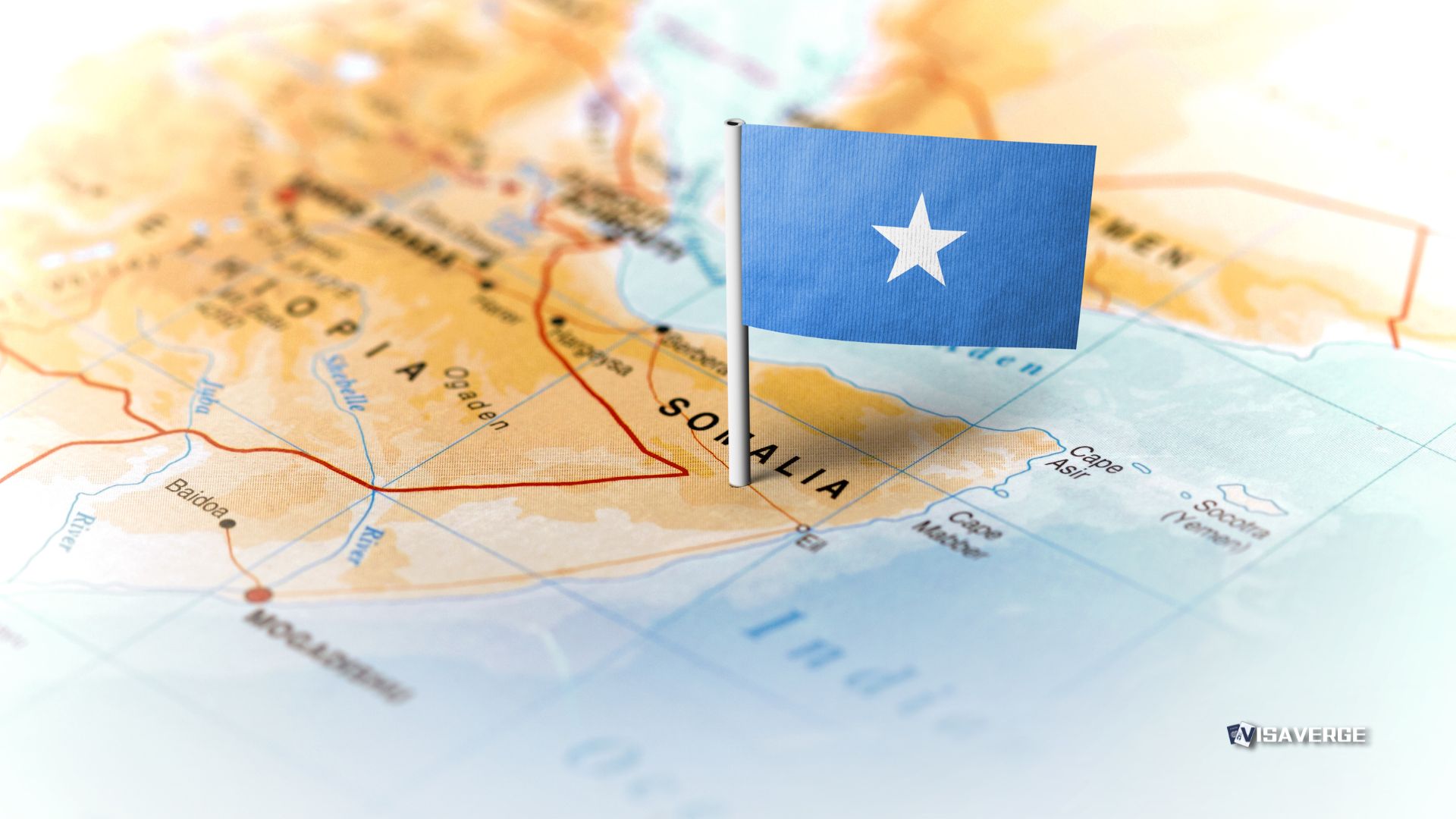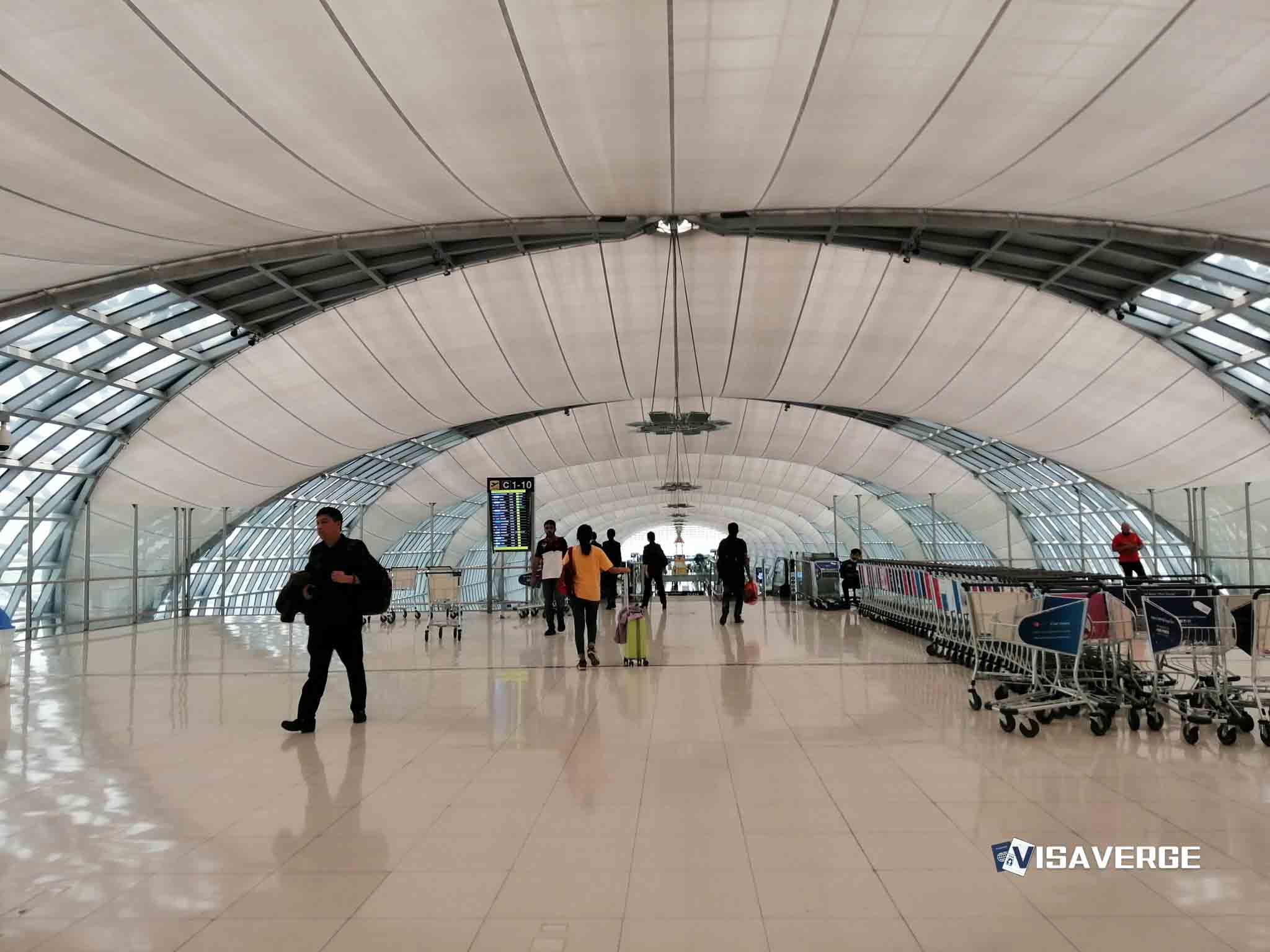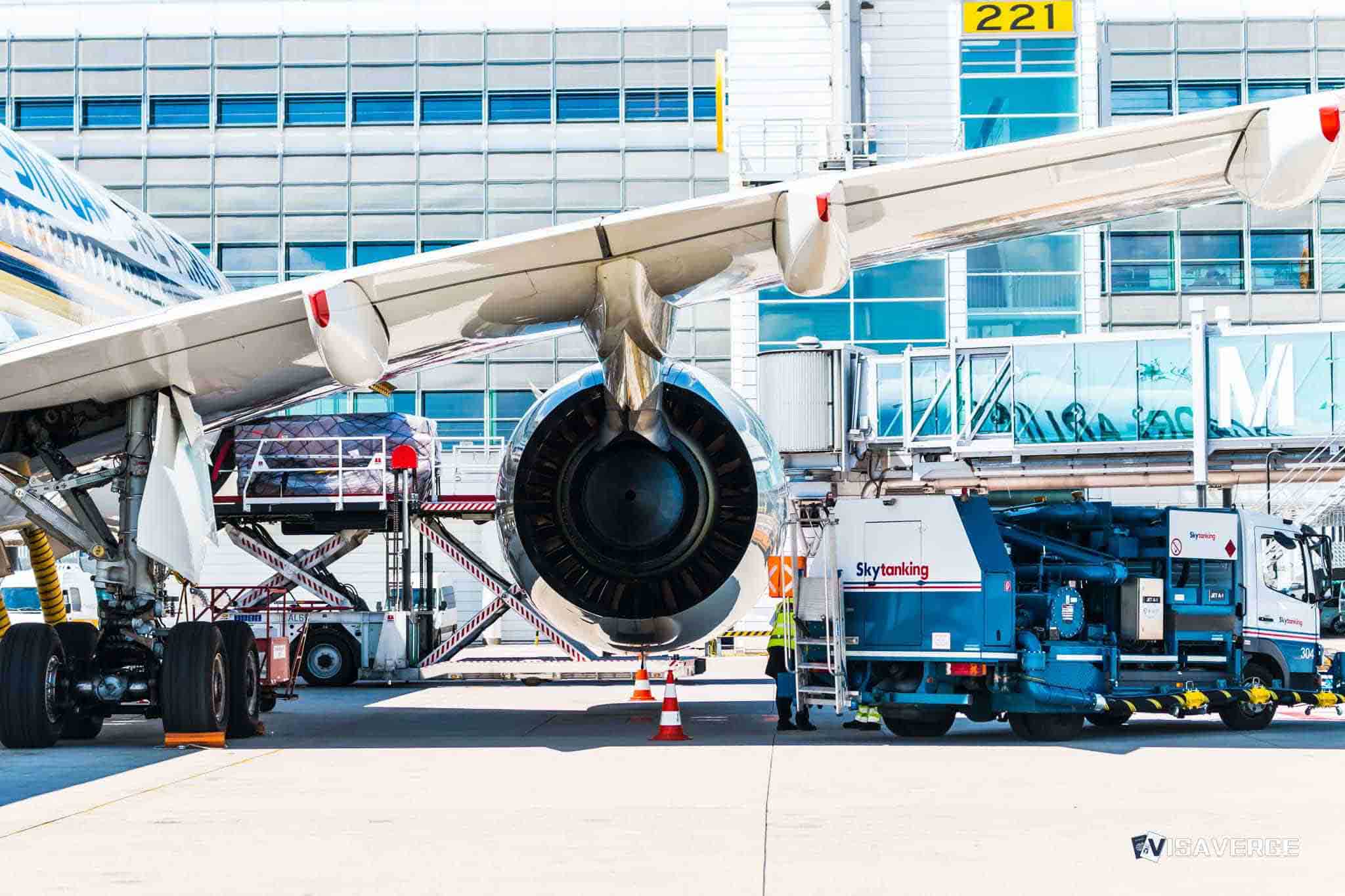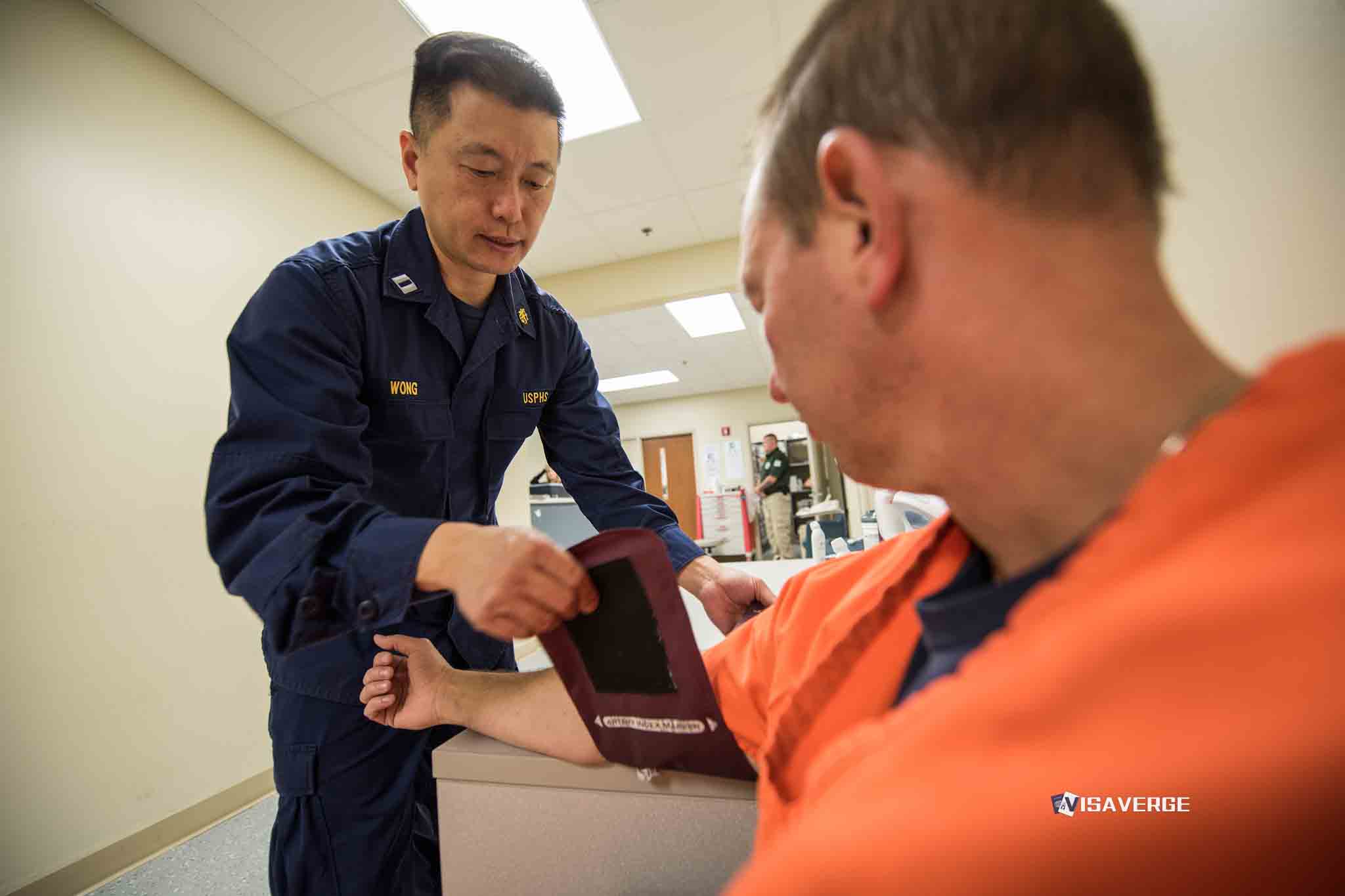Key Takeaways
• Somalia joined Interpol’s I-24/7 system on June 1, 2025, to share aviation security data globally.
• All international airlines must submit Advanced Passenger Information (API) and Passenger Name Records (PNR) before flights.
• The system enhances Somalia’s ability to detect terrorists and criminals, improving aviation security and traveler safety.
Somalia’s Leap Forward: New Aviation Security Data-Sharing with U.S. and Interpol
On June 1, 2025, Somalia 🇸🇴 took a major step in strengthening its aviation security by launching a new data-sharing system with the United States 🇺🇸 and Interpol. This move connects Somalia to Interpol’s I-24/7 global communications network, allowing Somali authorities to exchange aviation and criminal data in real time with 195 other countries. The system’s launch follows a new policy that, since March 31, 2025, requires all international airlines flying to and from Somalia to submit detailed passenger information to Somali authorities. These changes aim to address ongoing security threats, such as terrorism and organized crime, and bring Somalia’s aviation security in line with international standards.

This article explains what these changes mean, how the new system works, and what the implications are for travelers, airlines, and Somalia’s future.
What’s New: Somalia’s Aviation Security Overhaul
Who is involved?
– Somalia’s Immigration and Citizenship Agency (ICA): Leads the new system’s implementation.
– Interpol: Provides the global data-sharing platform and technical support.
– United States 🇺🇸: Offers logistical and security expertise.
– International Airlines: Must now comply with new data-sharing requirements.
What is happening?
– Somalia has joined Interpol’s I-24/7 system, connecting it to a secure network used by 195 countries.
– All international airlines flying to or from Somalia must submit Advanced Passenger Information (API) and Passenger Name Record (PNR) data to Somali authorities before flights.
When did this start?
– March 31, 2025: Airlines began submitting API and PNR data.
– June 1, 2025: The new data-sharing system officially launched.
Where is this happening?
– At all international airports in Somalia, with the system managed from Mogadishu.
Why is this important?
– Somalia faces ongoing threats from extremist groups and organized crime. The new system helps authorities identify and stop dangerous individuals before they can enter or leave the country.
How does it work?
– Airlines collect passenger data during booking and check-in.
– Data is sent electronically to Somali authorities using secure channels.
– Somali security agencies screen the data in real time, checking against international watchlists and criminal databases.
– Suspicious individuals are flagged for further checks or action.
The Details: How the System Works
What Are API and PNR Data?
- Advanced Passenger Information (API): Basic details about each passenger, such as name, date of birth, nationality, and travel document information. Airlines collect this during check-in.
- Passenger Name Record (PNR): More detailed information, including booking details, travel itinerary, payment method, and contact information.
These data types help authorities know who is traveling, where they are coming from, and where they are going. This makes it easier to spot people who might pose a security risk.
Step-by-Step: From Booking to Border
- Passenger books a flight: The airline collects basic and detailed information.
- Check-in: More data is gathered, including travel document scans.
- Data transmission: Before the flight departs, the airline sends API and PNR data to Somali authorities using secure, encrypted channels connected to Interpol’s I-24/7 system.
- Screening: The Somali ICA and security agencies check the data in real time. They compare it to international watchlists, criminal records, and other databases.
- Action: If someone matches a watchlist or is flagged for suspicious activity, authorities can take action before the person boards or after arrival.
- Feedback: Airlines and international partners receive updates if there are issues or if further information is needed.
Why Is This System Important for Somalia?
Somalia has struggled with security challenges for decades. Terrorist groups, such as al-Shabaab, and criminal networks have used weak border controls to move people and goods illegally. By joining Interpol’s I-24/7 system and requiring airlines to share passenger data, Somalia can:
- Identify and stop terrorists, human traffickers, and other criminals.
- Prevent people using fake documents from entering or leaving the country.
- Share information quickly with other countries to stop cross-border crime.
- Align with international aviation security standards, making it safer for travelers and more attractive for airlines.
The Policy in Practice: What’s Changed for Airlines and Travelers
Airlines: New Rules, New Responsibilities
All international airlines flying to or from Somalia must now:
- Collect API and PNR data from every passenger.
- Transmit this data to Somali authorities before the flight departs.
- Integrate their systems with the Somali ICA and Interpol’s I-24/7 network.
This means airlines have to update their booking and check-in systems, train staff, and ensure they follow the new rules. While this adds some extra work and cost, it also reduces the risk of being involved in security incidents.
Travelers: What to Expect
Passengers flying to or from Somalia will notice:
- More detailed information required when booking and checking in.
- Increased document checks at airports.
- Possible extra screening if their information matches a watchlist or raises concerns.
These steps are designed to keep everyone safer, but travelers should be prepared for longer check-in times and more questions about their travel plans.
The Bigger Picture: Why Now?
Somalia’s Security Challenges
For many years, Somalia’s aviation security was weak due to conflict and lack of resources. This made the country a target for terrorists and criminals. In recent years, Somalia has worked hard to rebuild its institutions, with help from international partners like the United States 🇺🇸 and Interpol.
- January 2025: Somalia and Interpol signed an agreement to fight organized crime and improve travel security.
- March 2025: Somalia made it mandatory for airlines to submit API and PNR data.
- June 2025: The new data-sharing system went live, fully connecting Somalia to global security networks.
These steps are part of a larger plan to modernize Somalia’s border management and aviation security, following United Nations Security Council Resolutions 2178 and 2396, which call for stronger international cooperation against terrorism.
International Support and Cooperation
The United States 🇺🇸 and Interpol have played key roles in helping Somalia set up the new system. The U.S. Embassy in Somalia provided technical and logistical support, while Interpol offered the secure communications platform and training for Somali officials.
General Dhoore, Commander of Interpol in Somalia, praised the ICA’s efforts, saying the partnership is vital for regional security. The head of Interpol’s Somalia branch also highlighted the agreement’s importance for both local and international safety.
Implications for Stakeholders
For the Somali Government
- Restores control over borders and airspace.
- Improves reputation with international partners and donors.
- Helps rebuild national institutions after years of conflict.
For International Partners
- Strengthens global efforts to fight terrorism and organized crime.
- Reduces the risk of dangerous individuals moving across borders undetected.
- Sets an example for other countries in the region facing similar challenges.
For Airlines
- Requires investment in new systems and staff training.
- Reduces the risk of being linked to security incidents.
- Provides clearer rules and procedures for handling passenger data.
For Travelers
- Increases safety and security at Somali airports.
- May lead to longer check-in times and more questions.
- Requires sharing more personal information with authorities.
For Civil Society and Human Rights Groups
Some groups may worry about privacy and how personal data is used. While these concerns are important, the main goal of the new system is to keep people safe and stop crime. Somali authorities and their partners say they will handle data responsibly and follow international rules.
How Does This Compare to Other Countries?
Many countries, including the United States 🇺🇸 and those in the European Union, already require airlines to share API and PNR data. These systems have proven effective in stopping terrorists and criminals from traveling. By adopting similar rules, Somalia is joining a global effort to make air travel safer for everyone.
According to analysis by VisaVerge.com, integrating with Interpol’s I-24/7 system and requiring API and PNR data puts Somalia on par with international best practices. This not only helps protect the country but also builds trust with airlines and travelers.
Legal Basis and Official Requirements
The new rules are based on Somalia’s Travel Law No. 9 of 1966, which gives the government the power to set travel and border security policies. The law has been updated to reflect modern security needs and international standards.
For more details on Interpol’s global communications system and its role in aviation security, readers can visit the official Interpol website.
Looking Ahead: What’s Next for Somalia’s Aviation Security?
Ongoing Improvements
- Training: Somali security staff will continue to receive training from Interpol and U.S. experts.
- Technology upgrades: More advanced systems will be added to improve data analysis and response times.
- Regional cooperation: Somalia’s success could inspire neighboring countries to adopt similar measures.
Monitoring and Evaluation
The effectiveness of the new system will be closely watched. Somali authorities, together with their international partners, will review how well the system works and make changes as needed to address new threats.
Building Public Trust
As the system becomes more established, Somali officials will need to communicate clearly with the public about how data is used and protected. This will help build trust and ensure that security measures do not unfairly target innocent travelers.
What Should Airlines and Travelers Do Now?
Airlines
- Update booking and check-in systems to collect and transmit API and PNR data.
- Train staff on new procedures and security requirements.
- Work closely with Somali authorities to ensure compliance and avoid delays.
Travelers
- Be ready to provide more information when booking and checking in for flights to or from Somalia.
- Arrive at the airport early to allow time for extra checks.
- Carry all required travel documents and be prepared to answer questions about your trip.
Conclusion: A Safer Future for Somali Aviation
Somalia’s partnership with the United States 🇺🇸 and Interpol marks a turning point in the country’s efforts to secure its borders and airspace. By joining the global fight against terrorism and organized crime, Somalia is making air travel safer for everyone. While the new rules mean more work for airlines and more checks for travelers, the benefits in terms of security and international cooperation are clear.
As Somalia continues to rebuild and modernize, these changes show a strong commitment to protecting its people and working with the world to stop crime and terrorism. The coming years will be important as the system is tested and improved, but the foundation is now in place for a safer, more secure future.
For more information on Somalia’s aviation security reforms and how they affect travelers and airlines, check official government updates and the Interpol I-24/7 system page.
Key Takeaways:
– Somalia now shares aviation security data with the United States 🇺🇸 and Interpol.
– All international airlines must submit passenger data before flights.
– The system helps stop terrorists and criminals from using Somali airports.
– Travelers should expect more checks and provide more information.
– The move brings Somalia in line with global aviation security standards.
By working together with international partners, Somalia is taking real steps to protect its borders and people, setting an example for others in the region.
Learn Today
Interpol I-24/7 system → A global secure network connecting 195 countries for real-time sharing of law enforcement information.
Advanced Passenger Information (API) → Basic passenger details airlines collect, including name, birth date, nationality, and travel document data.
Passenger Name Record (PNR) → Detailed travel information such as itinerary, payment, and contact details collected by airlines.
Secure data transmission → Encrypted electronic transfer of passenger information to authorities for safety and privacy.
Border security → Measures and systems used to monitor and control the movement of persons across national borders.
This Article in a Nutshell
Somalia launched a data-sharing system with the U.S. and Interpol to protect aviation security. Airlines now submit passenger data before flying to or from Somalia. This new system improves real-time threat detection, aligning Somalia with international security standards and boosting regional and global aviation safety efforts.
— By VisaVerge.com








